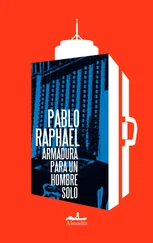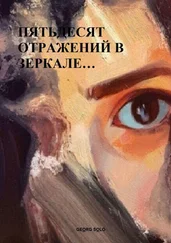He suddenly remembered that there had been a record of Bulgarian folk music that had sold in the millions some years ago. He tried to think of the title.
‘I wasn’t trying to imply that you are idiots,’ he said.
‘Come to Sofia,’ said the young bureaucrat, more amiably. ‘I’ll take you to hear things you never imagined. And I’ll give you nice warm weather, not like here.’
Looking into his cocktail, Plastic saw a tiny bubble escape from under the olive and surrender to the surface. He said,
‘Get in touch with my secretary about dates, and send me a plan.’
9
PLASTIC WAS IN A HOTEL ROOM in Sofia, staring at the winged statue in the square outside.
Bozhidar said,
‘I’m afraid the prime minister cannot meet you. He is away on official business.’
He appeared very regretful, and Plastic had the annoying feeling he was trying to show the level of his influence.
He was waiting for Bozhidar to leave his room so he could take a shower and freshen up from his journey. He had no patience at this moment for the twelve-page itinerary Bozhidar had prepared.
Plastic picked up his shampoo by way of a hint, but Bozhidar continued to read out the list of appointments. Plastic noted that two afternoons had been set aside for interviews with journalists, which he would cancel as soon as he could. It was not his style. He liked to go low key, his ears unburdened.
Bozhidar was saying,
‘Tomorrow you will meet Daniela Ivanova. She is talented and beautiful, with a recent big hit for the Bulgarian version of Eye of the Tiger . In Bulgaria we are very obsessed with her breasts.’
Later that day, Plastic was taken to attend the opening of a new business park. A delegation came to thank him for everything he was doing for the country.
He said to Bozhidar,
‘Do these people understand why I’m here? I’ve come on my own account. What are they expecting from me?’
Bozhidar waved it away. He took Plastic to the opening of the Leonardo da Vinci exhibition at the Sofia Art Gallery, which his ministry had been planning for a year. There were speeches and self-satisfied toasts, and the city’s elite stood around with wine. Though they laughed among themselves, Plastic did not manage to get beyond formalities with anyone. He looked at the paintings and was astonished to see they were all paper facsimiles, and bad ones at that.
The next two days passed slowly. He heard several mediocre bands. He had lunch with overeager teenage guitarists. A musicologist gave a lecture.
Plastic was discouraged by Bozhidar’s behaviour. He had liked him in New York, but in his own environment, Bozhidar appeared humourless and excessively preoccupied with punctuality, and Plastic began to find his presence burdensome. Over dinner he gave the same speech about heavy metal he had given in New York, almost word for word, and Plastic felt he had exhausted the young man’s spontaneity in that first encounter.
Gospodinov was nowhere to be seen.
Plastic escaped for a couple of hours, eager to be alone. He wandered through old residential streets where the shutters were all fastened. He peered through the opaque glass of defunct shops. He looked at the rows of buzzers outside the houses, and the graffiti whose lettering he could not read.
He admired the Alexander Nevsky church, and browsed the flea market in the square outside. The bric-a-brac calmed him down. He bought himself a presentation medal embossed with the heads of Lenin and Todor Zhivkov. It was very cheap, and probably fake, but that only made it more exotic.
That night, Plastic resisted Bozhidar’s invitation to after-dinner drinks, and went back early to his hotel. He sat and listened to the excellent ensemble playing in the lobby, and afterwards had a long conversation with a man named Slavo, an original Gypsy violinist. Early the next morning, Plastic gave Bozhidar the slip. He packed his bag at 6 a.m., paid his bill and left the hotel.
It was only April, but as he walked towards the bus station the morning sun was warm, and post-coital cats lay out in the shafts. Traffic was sparse at this hour, flashing double in the windows of the new boutiques. Plastic arrived at the bus station and read the timetable of departures for Belgrade, Bucharest and Istanbul. He conferred with a taxi driver, who had no problem taking him where he wanted to go.
‘How long will it take?’ asked Plastic.
‘Four hours,’ said the driver. ‘Maybe five.’
‘Great,’ said Plastic. ‘Give me a minute.’
He went off in search of a toilet. At the edge of the forecourt was a broken hut with the sign of the minimum man. Plastic stuck his head in, and immediately withdrew. There was an inch of still water on the floor, and his entrance triggered a jazz-cloud of mosquitoes.
He was thinking of braving it on tiptoe when he spotted in the distance a friendly wall, and a secluded alley behind. He ran over gratefully, still carrying his bags.
He was not the first to have discovered this spot. In fact there were two other men standing there now, and Plastic had to walk down to find a place. The wall was black with ancient urine, and Plastic held his breath against the stench while he added another layer.
Still pissing, he suddenly felt an unaccountable need to turn around. He craned his neck and looked up at the dilapidated building behind him. No one was there. There was nothing but rows of empty windows, old and blind.
The driver turns off the engine, and car doors slam. Such sounds are authoritative against this silence. Plastic stands for several moments in the expanse, motionless and uncertain, for the empty town is eerie, and he has impressions of ghosts.
The wind gusts, now and then, and there are flocks of butterflies, but he is unprepared for the pig that emerges loudly from behind a collapsed truck, snorting unrestrainedly. He is quite embarrassed at the strength of his reaction. He watches the pig amble for a moment and sees it is tied with a long rope.
He walks towards the building — which is a grand word for this flapping pile of corrugated iron. A conveyor belt, which once carried material from the ground level up to a hatch near the top of the factory, has collapsed, and lies shattered where it fell.
He calls out, Boris! and larks take off from the trees. The silence does not alter, and he tries again.
A young man appears in an entrance. He cannot be more than twenty years old. He is taken aback to be summoned by name.
Plastic approaches, but not too close.
‘You’re Boris?’ he calls across the gap.
The young man gives a nod.
‘Slavo sent me. He said you would be here. He said you play violin.’
The young man stares for a long while. Then he disappears inside, and Plastic follows. The place is a death trap, with rusting tanks burst open, and great pipes ready to fall at any moment from the ceiling. There is a bed here, and several books, and it smells of rat piss and cooking.
‘You live alone?’
Boris nods.
‘My grandmother was with me,’ he says. ‘She died a while ago.’
He has his violin in his hand. It is strung with wires he must have made himself. He plays a slow and enigmatic air.
Hearing the music, Plastic pictures himself walking along an empty road. Far ahead he sees people running towards him. When they draw close, they gesticulate fearfully to where they have come from, warning him against going there. They have no time to stop, and continue frantically on their way.
More people come, and more — and the line of people fleeing soon becomes so dense that Plastic is forced to walk by the side of the road so they may pass. He shields his eyes to look at the horizon ahead, but he can see nothing: no smoke, no flames, no dust. ‘What are you running from?’ he asks the crowd, but there is no answer.
Читать дальше
Конец ознакомительного отрывка
Купить книгу












